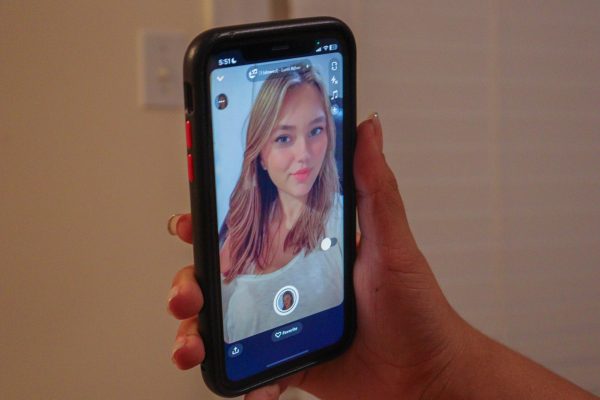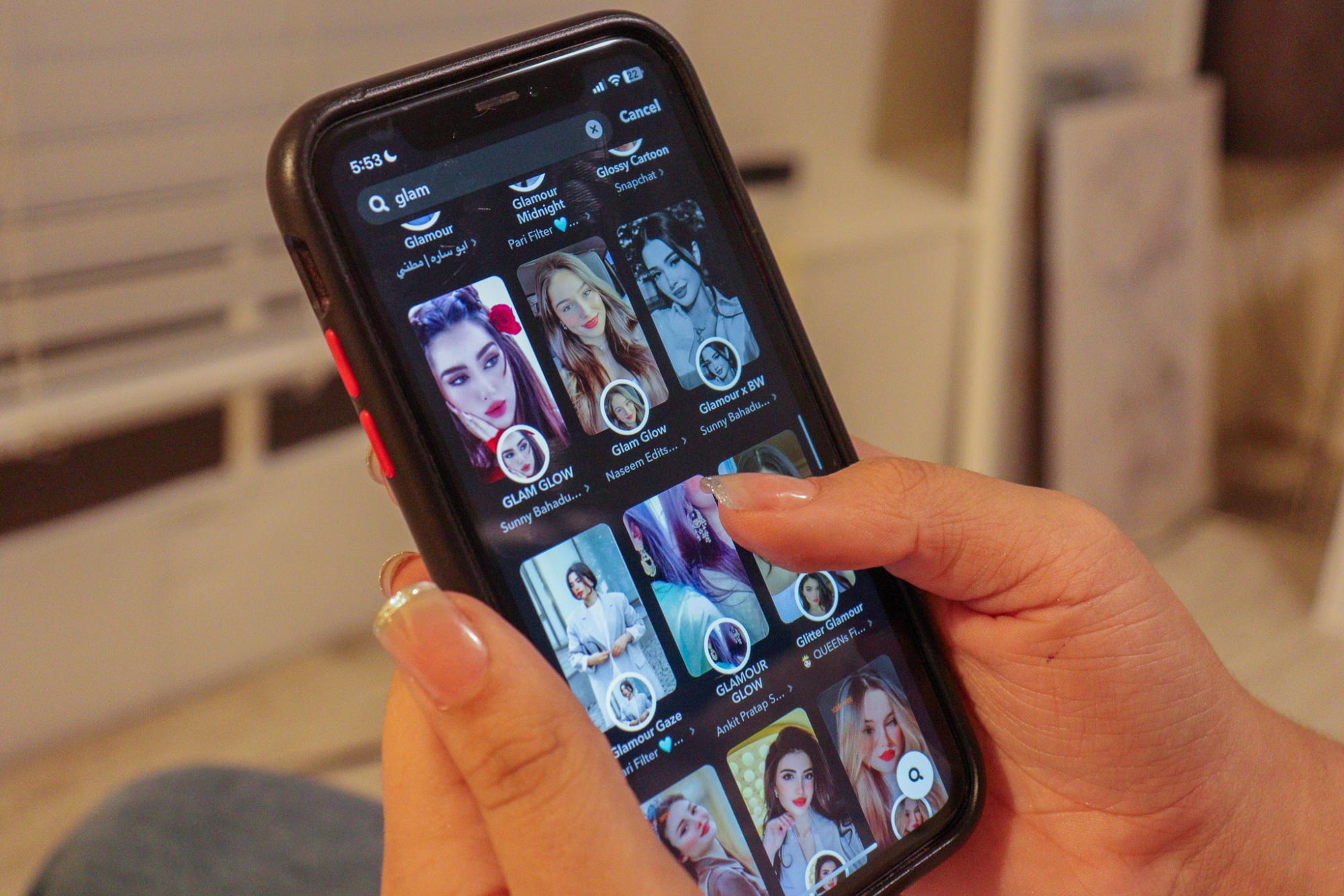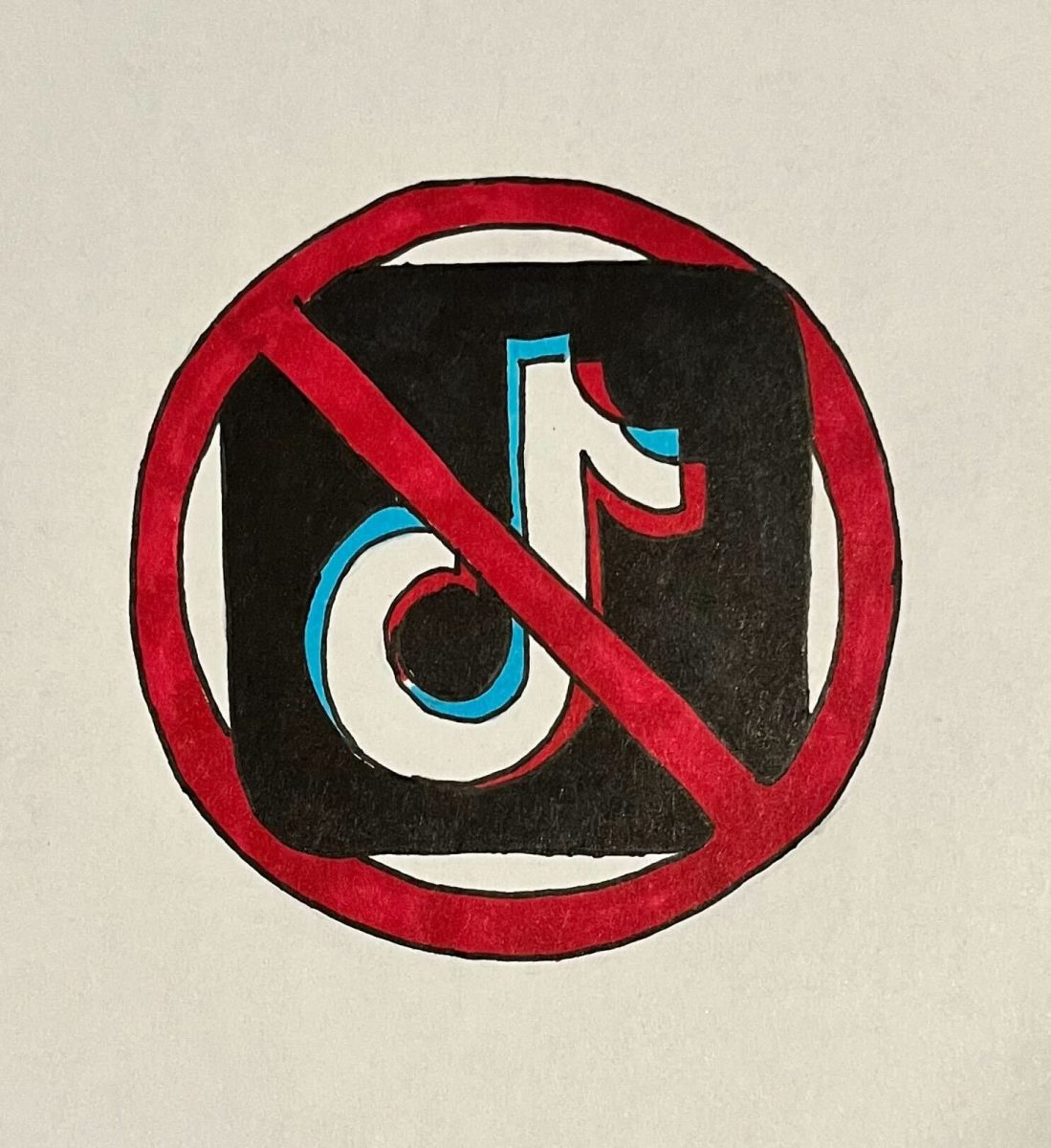Smaller noses, whiter teeth, flawless skin, and longer lashes are a sample of the hyper-realistic filters that meet teenagers’ social media feeds. For some users, a seemingly harmless social media feature has become a damaging trend; leading to body dysmorphia and other mental health issues.
On Oct. 24, 41 states, including California, sued Meta, the tech company that owns Facebook and Instagram, claiming that the addictive features found on the platforms target children and teens, harming their mental health. The lawsuit claims that Facebook and Instagram have traits to keep teens and children on the sites longer and repeatedly coming back. Some of these aspects include infinite scroll, push notifications, and “likes.” The allegations state that Meta knew these addictive features would hook teens and lower their self-esteem.
California Attorney General Rob Bonta co-led the federal complaint against Meta. In the lawsuit, Bonta accused Meta of violating multiple state and federal laws, including the Children’s Online Privacy Protection Act (COPPA), California’s False Advertising Law (FAL), and California’s Unfair Competition Law (UCL).
“We’re disappointed that instead of working productively with companies across the industry to create clear, age-appropriate standards for the many apps teens use, the attorneys general have chosen this path,” Meta responded in a statement to the New York Times.
The allegations included prioritizing maximum engagement over young users’ safety; an algorithm that encourages compulsive use, which is harmful to young users’ mental health; and features such as visual filters that promote eating disorders and body dysmorphia. The complaint stated that Meta knew that these harmful features were targeting young users’ developing minds, but didn’t change them.

Beauty filters enhance videos and photographs, increasing the subject’s stereotypical physical attractiveness. They commonly smooth skin and modify facial feature proportions, oftentimes by narrowing noses or enlarging eyes. These filters continue to gain popularity on social media platforms and are becoming increasingly difficult to detect.
Archie Williams freshman Juliet Stucky has observed many of her peers using filters. Juliet has noticed friends lean on filters to boost their confidence, but she also notices the filters creating unrealistic expectations.
“Sometimes someone’s sick, or they just aren’t feeling their best, [so] a filter on Snap[chat] could help them feel more confident. But, I could see where filters could be toxic, where you could see someone else using them and think that’s how they really look,” Juliet said.
There are humorous filters on social media, such as the dog ear filter on Snapchat, that users experiment with. However, the “harmful” ones often subtly modify the way a person’s entire face looks.
“I’ll use funny filters when I send stuff to my friends, but I try to stay away from beauty filters,” said freshman Ava Smith.
The idea that beauty filters will give you a “perfect face” perpetuates an unattainable and often harmful beauty standard. In a Parents Together survey of over 200 teenagers aged 13-17, 60 percent say beauty filters make them feel worse about how they look in real life. Wellness counselor Nivie Oron has found that a student’s freedom to open an app and be able to see their entire face changed has negative impacts that weren’t possible in previous decades.

“It has more and more influence in our world. The beauty filters are unique for our time because we used to only see beauty standards represented by other people, like in magazines and movies. That was already a lot… but now, you just open an app and you can instantly see an altered version of yourself,” Oron said.
Body dysmorphia, a mental health condition linked to worrying about flaws in one’s own appearance, leads to numerous mental health problems. In 2019, the Mental Health Foundation surveyed British teenagers aged 13-19 and found that more than a third of teens stopped eating at some point or restricted their diets due to worrying about their body image.
Meta denies the allegations that Instagram harms teens, stating that teens struggling with eating disorders, anxiety, and other mental health issues were more likely to say that Instagram was helping them, not making them worse. They claim harmful content violates their policies and they use AI to detect and remove it.
Social media filters impact more than teens’ views on their body and weight. In the book The Algorithms of Oppression: How Search Engines Reinforce Racism, author Safiya Umoja Noble explores how algorithms and search engines have a racial bias. She uncovers how algorithms discriminate against people of color, especially women of color. In Umoja’s book, she states that people often think of these algorithms as being neutral, but they are the opposite.
At a DEFCON security conference, Bogdan Kulynych, a former graduate student at Switzerland’s EFPL university and researcher, found that Twitter’s algorithm favored lighter faces over those that were darker.
“I am especially concerned for the mental health of students of color, students who don’t fit the thin body ideal, or don’t fit the beauty standards in other ways…” Oron said. “[Beauty filters] often promote very white ideals, which overlap with thin ideals that must be viewed within the context of the historical view that whiter bodies are more beautiful.”
The Parents Together survey also found that teens who use beauty filters at least once a week are twice as interested in cosmetic surgery and four times as interested in changing their skin color as those who use filters less often.
“Constantly seeing pictures of your friends or people you don’t know and you’re just like, whoa, I wish I looked like that,” said freshman Victoria Anderson-Lynch.
These filtered photos generally target girls and women but still can impact any gender. Senior Marcelo Jones thinks that social media increasingly affects women because of high beauty standards.
“I think it definitely affects young women more than dudes because it’s like, you gotta pose and look pretty for the picture. [As a] dude, I could post myself looking hella ugly and get tons of likes, because I’m not worried about the beauty standards of that,” Marcelo said.
Senior Caden Guzman found that instead of making him feel insecure, photos on social media helped give him inspiration.
“[Social Media] gives me goals to try and get to but it doesn’t really affect my personal body image,” Caden said.
Filtered photos are often difficult to detect. In the Parents Together survey, teens examined 10 photos of celebrities on social media and guessed which photos had filters and which didn’t. 70 percent of participants received a failing score.
“Most of the time filters have gotten just really realistic now, so you can’t really tell,” Ava said.
However, other teens disagree, saying that filters can be obvious at times, particularly if you know the person in the photos.
“Filters are one thing, but [people] also edit pictures with FaceApp and stuff…People think they’re slick, but you can tell, especially if you’ve seen them before,” Marcelo said.
One way to prevent social media from becoming toxic is by following body-positive accounts. Body-positive accounts embrace people of all shapes, sizes, and colors. Their goals are to help people feel more confident and accepting about their bodies.
“I feel like now there’s a lot more body-positive influencers. So social media isn’t really as toxic as I feel like it used to be,” Juliet said.
Oron’s main tip regarding mental health while being on social media is to focus on self-care. Know when to step away from phones, remember to spend quality time with loved ones, and get outside. Finding balance in a world full of social media is key to staying happy and healthy.
“Social media companies intentionally use additive methods to get you to stay on their app. It’s definitely harmful, but I think people aren’t going to stop using it. So I think we just need to figure out how to balance it,” Victoria said.









